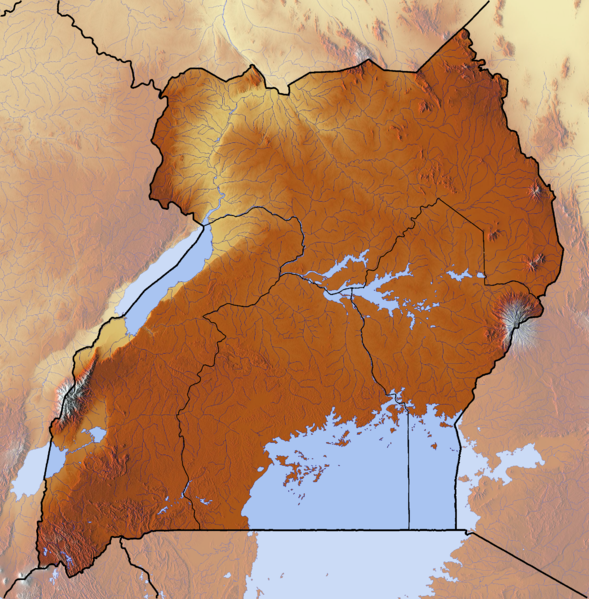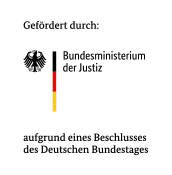Introduction
In the heart of Africa, a storm is brewing within the hallowed halls of legislative chambers, and the tempest is named the Anti-Homosexuality Act of 2023.
Nestled within the intricate legal deliberations of the Constitutional Court of Uganda, the recently enacted legislation whose constitutionality is set to be determined by a court in Uganda has stirred widespread controversy not only for its potential impact on the LGBTQ+ community but also for the unique influence of religion on its inception and development needless to mention, the potential of inadvertently encircling every one as a victim, ironically, the protagonists alike.
The Person of God and the Anti-Homosexuality Act 2023
In the heart of the 2023 Anti-Homosexuality Act lies a profound connection to what is colloquially known as ‘the person of God.’ This phrase encapsulates the intertwining of religious doctrines and legal frameworks, a phenomenon increasingly prevalent in Africa’s legal landscape. Key figures such as Pastor Martin Ssempa, founder of Kampala Makerere Church, and Steven Langa, leader of the Family Life Network both groups operating in Uganda and associated with US conservative far-right evangelicals, were the faces behind the heavily punitive first anti-Homosexuality law in 2012, later in 2014 overturned by court on technicalities.
Active involvement of religious leaders
These influential figures have not only been spotted hosting prayer sessions that attracted prominent USA extreme evangelicals from Family Watch International including its head Sharon Slater, members of Uganda’s first family, parliamentarians, and other religious leaders during the legislative processes but have also been allowed by the Constitutional Court of Uganda to be joined as respondents to the petition. This is ostensibly a preserve of the Attorney General, the government’s legal advisor, and the sole sued party, as stated in the filled court documents. The consolidated petition against the law was filed by LGBTIQ+ activists, high-profile legal academicians from Makerere University, and a legislator, among others.
The resonance of this law with controversial divine guidance and the entrenched active involvement of religious leaders raises critical questions about the boundaries between faith and governance, as well as the potential ramifications for the LGBTQ+ community. The Constitution of Uganda, the country’s supreme law, under Article 7, states, ‘Uganda shall not adopt a state religion.’ This provision can directly be interpreted as recognition of religious freedom while limiting the influence of religion on other aspects of the state, including governance, legislation, and the dispensation of justice.
Church of Uganda supported the Anti-Homosexuality law
According to Nimrod Muhumuza in his op-ed in a national local daily, ‘Religion should not be the basis for government policy or legislation.’ The lawyer argues that a religious-based mantra by faith leaders linking Uganda to a specific religion is mainly deployed against sexual minorities.
The Church of Uganda, led by Archbishop Steven Kazimba, that supported the Anti-Homosexuality law alongside the Interreligious Council of Uganda (IRCU), which brings together religious faiths, made irrevocable statements in support of the law’s contents, which include punishment with the death penalty for repeat offenders and three years’ imprisonment for children.
‘‘The Church of Uganda welcomes the diligent work of Parliament and His Excellency, the President, in crafting the Anti-Homosexuality Act 2023.’’
In stark departure from the Biblical provision in which ‘Jesus’ is debatably reported through another figure, ‘Apostle John’ to have mocked a mob that sought to stone a ‘sinner’, challenging those without sin to be the first to cast a stone. There is also a popular belief among Christians that the church should be an open place for all ‘sinners’ and should not prescribe earthly punishment for them by other mortals. It follows that religious-backed laws have been passed in the country, targeting members of the LGBTIQ community specifically due to their differing sexual orientation, gender identification, or characteristics (see Anti-homosexuality laws 2014 and 2023). Examining the history of the development of the Ugandan constitution alongside the present ever-growing list of religious denominations with Catholics accounting for over 40 percent as per the 2014 national census, it is plausible to deduce that religion in Uganda rightly sits in a non-mandatory category as a persuasive engine for coexistence or calm and an extension into the role of criminalization is a neck-break and dangerous overstretch.
Religious Influences on Legislation beyond Uganda: Ghana, Kenya, Tanzania
Uganda is not alone in grappling with the complex interplay between religion and legislation concerning homosexuality. A similar sentiment resonates in the legislative landscapes of Ghana, Kenya, Tanzania, and several other African nations where Anti-LGBTIQ laws are currently under consideration or debate. These legal maneuvers, deeply rooted in religious ideologies, underscore a broader trend across the continent where faith intersects with legal frameworks, shaping policies that impact the lives of marginalized communities.
Ghana: The Pervasive Reach of Religious Doctrine
Ghana, often lauded for its cultural diversity, finds itself entangled in a discourse that intertwines religious teachings with legislative decisions. The ongoing discussions surrounding Anti-LGBTIQ legislation in Ghana highlight the pervasive influence of religious doctrine on societal norms and legal frameworks. In a nation where Christianity and Islam coexist, religious leaders often wield considerable influence, contributing to a complex socio-religious fabric that informs legal perspectives on homosexuality.
The country’s legislature is currently in its final stages of enacting an anti-LGBTIQ law titled ‘The Proper Human Sexual Rights and Ghanaian Family Values Bill 2021’ with extensive criminalization that includes ‘same-sex activities,’ same sex marriage, identify as LGBTQ+, ally or participating in Gender affirming surgeries. The legislative process was equally supported. The Council of churches in Ghana that brings together most of the Christian religious denominations were the early supporters of the Bill demonstrating excitement at the legislative process in their statement;
‘We, the leadership of CCG and GPCC are excited at the progress of the Promotion of Proper Human Sexual Rights and Ghanaian Family Values Bill, 2021. The two Councils have stated in earlier communiques that as Christians, we uphold the Bible as our Principal guide and consider the LGBTQI+ in all its forms as unacceptable behaviour that our God frowns upon (Romans 1:25–28). Moreover, it is alien to the Ghanaian culture and family value system, and as such, the citizens of this nation cannot accept it.
We therefore encourage Parliament to expedite action on the Promotion of Proper Human Sexual Rights and Ghanaian Family Values Bill, 2021 to help safeguard our cherished family system in Ghana.’
A few days to the finalizing of the legal process, a distinct group of catholic bishops under the coalition have since re-aligned their support by objecting criminalizing of homosexuality or mistreating LGBTIQ+ persons while they maintain that it is the ‘sexual act’ that is a sin.
Kenya: Striking a Balance Between Tradition and Progress
In the East African nation of Kenya, a vibrant democracy is navigating the delicate balance between tradition and progress. The Anti-LGBTIQ legislations under consideration in Kenya reflect a struggle to reconcile deeply entrenched religious beliefs with the call for inclusivity and human rights. As the nation grapples with the tension between conservative religious views and a growing demand for LGBTQ+ rights, the legal landscape becomes a battleground where faith and progress collide. On September 13TH 2023, The Kenyan Supreme court in ground breaking decision upheld a lower court’s finding that LGBTIQ+ persons have a right to association in effect legalizing registering queer civil society and ending an over 5 years court ‘battle.’’ The decision however sparked further religious motivated demonstration in the country with calls from religious leaders for the resignation of the judges of Highest court of the country who ruled ‘progressively. The anguish orchestrated by the clerics led to reinvigoration of efforts to mute a comprehensive anti-LGBTIQ law by Homa Bay Town council legislator to Kenyan parliament, Peter Kaluma named ‘Family Protection Bill 2023’ similar to those in Uganda and Ghana. The Bill prescribes a 50-year prison sentence for consensual same sex relations. The sentiment was quickly picked up and escalated among the Muslim dominated parts of Kenya including Mombasa with a Nyali constituency legislator Ali Muhammed calling for stoning of LGBTQ persons per the Quran teachings and jailing LGBTIQ activists. Importantly, the pace of the Bill has been been slower and yet to be introduced before the country’s legislators in what can be attributed to strong democratic and progressiveness of the country. The Country’s president Ruto, while appearing at international Television interview provided dismissive remarks by saying,
“This is not a big issue for people of Kenya,”
A remark that signifies, political focus on development of the coastal-linked East African country that recently declared Visa-free entry to all victors.
Tanzania: Faith-Based Legislation in a Diverse Nation
In the diverse tapestry of Tanzania, faith-based conversations regarding homosexuality are contributing to a complex narrative. With a significant Muslim population along the coastal regions and a predominantly Christian interior, the nation grapples with varying religious perspectives that shape the discourse surrounding LGBTQ+ rights. According to African Services Committee organization, In October 2017, Tanzania deported the staff of several foreign HIV and health groups, claiming they were “promoting homosexuality” with their HIV prevention work. The most significant step is when a high court declared lawful the action of the police to arrest and deport the said workers finding that the police actions were lawful.
The country’s leaders have also made alleging promotion of homosexuality in reference to Human Rights and HIV response services provide by civil society pushing negative narratives with the potential of leading to criminalization of same sex relationships. The ongoing debates in Tanzania echo the broader struggle across Africa, illustrating the clash between religious convictions and the evolving understanding of human rights.
The Global Context: International Reactions and Human Rights Advocacy
As these African nations navigate the intricate web of faith and legislation, the international community closely watches the developments. From strong statements from Western governments to actual consequential steps including the most recent United States of America’s Biden Administration’s expansion of visa bans to Human Rights violators in Uganda, actual designation of government officers under whose watch Human Rights violations are meted out, to halting of public loans by institutional such as World Bank on condition that the countries like Uganda need to adhere to shared values by repealing the Anti Homosexuality Act. Human rights organizations, activists, and global leaders weigh in on the impact of these proposed laws on the LGBTQ+ community. In contrast, religious leaders at the global level including the Pope, share a centrally opinion to that of their counterparts in East and Western African countries on criminalizing homosexuality. The Pope has made several remarks stating that;
‘Being homosexual isn’t a crime’
and that,
‘Homosexuals are children of God’
The intersection of religion and legislation in these African nations serves as a focal point for discussions on universal human rights and the imperative of respecting diverse identities and orientations.
Conclusion: Navigating the Crossroads of Faith and Legislation
In the crucible of faith and legislation, Uganda, Ghana, Kenya, and Tanzania find themselves at a crossroads, grappling with the profound implications of Anti-Homosexuality and Anti-LGBTIQ laws. The interconnectedness of religious beliefs with legal frameworks raises questions about the separation of church and state, the protection of human rights, and the journey towards a more inclusive society.
As these nations stand at the precipice of potentially far-reaching legislative decisions, the global community observes, hoping for a path that respects both religious convictions and the fundamental rights of all citizens. The unfolding narrative in Africa underscores the ongoing global conversation about the role of faith in shaping legal perspectives, with implications that reverberate far beyond the borders of the continent.
X*
The author is a Ugandan lawyer and Human Rights Defender
*Die Hirschfeld-Eddy-Stiftung kennt den Namen de*rs Aktivist*in, hier soll er nicht genannt werden. Hirschfeld-Eddy-Stiftung knows the full name of this activist. Due to security concerns it is not made public.
An article for the Hirschfeld Eddy Foundation project “We believe in change”: Human rights, freedom of religion or belief, and non-discrimination. All publications for the project can be found under the tag WBIC-2023 (some content in English)



